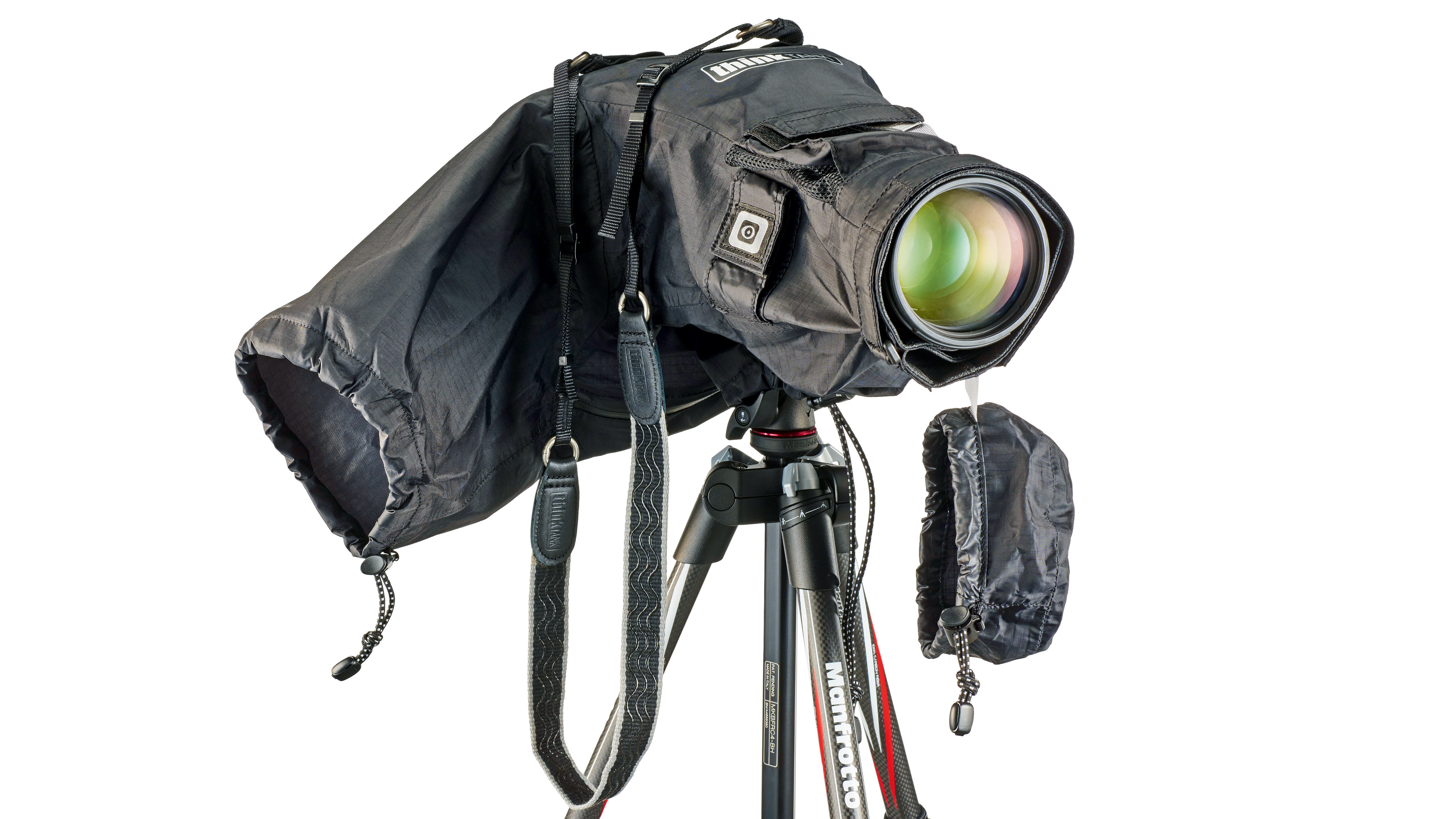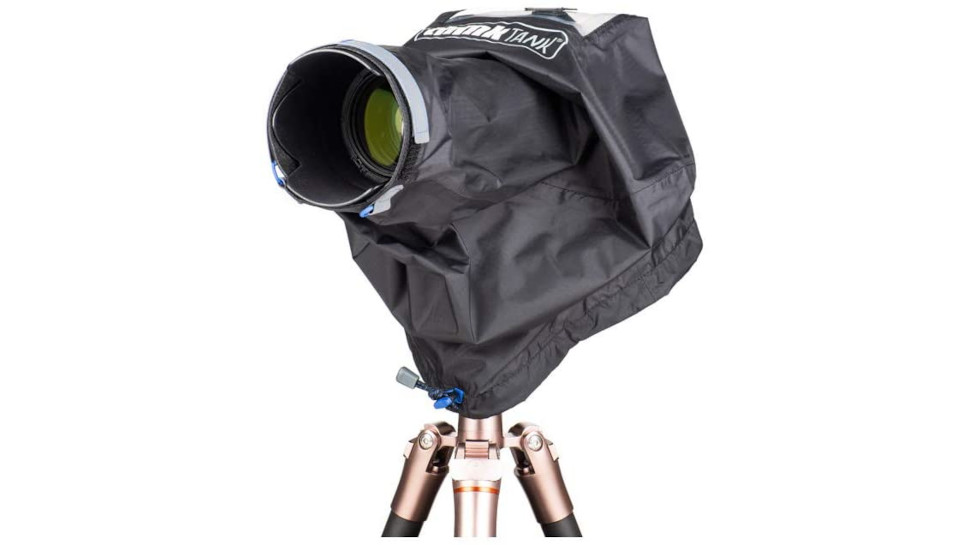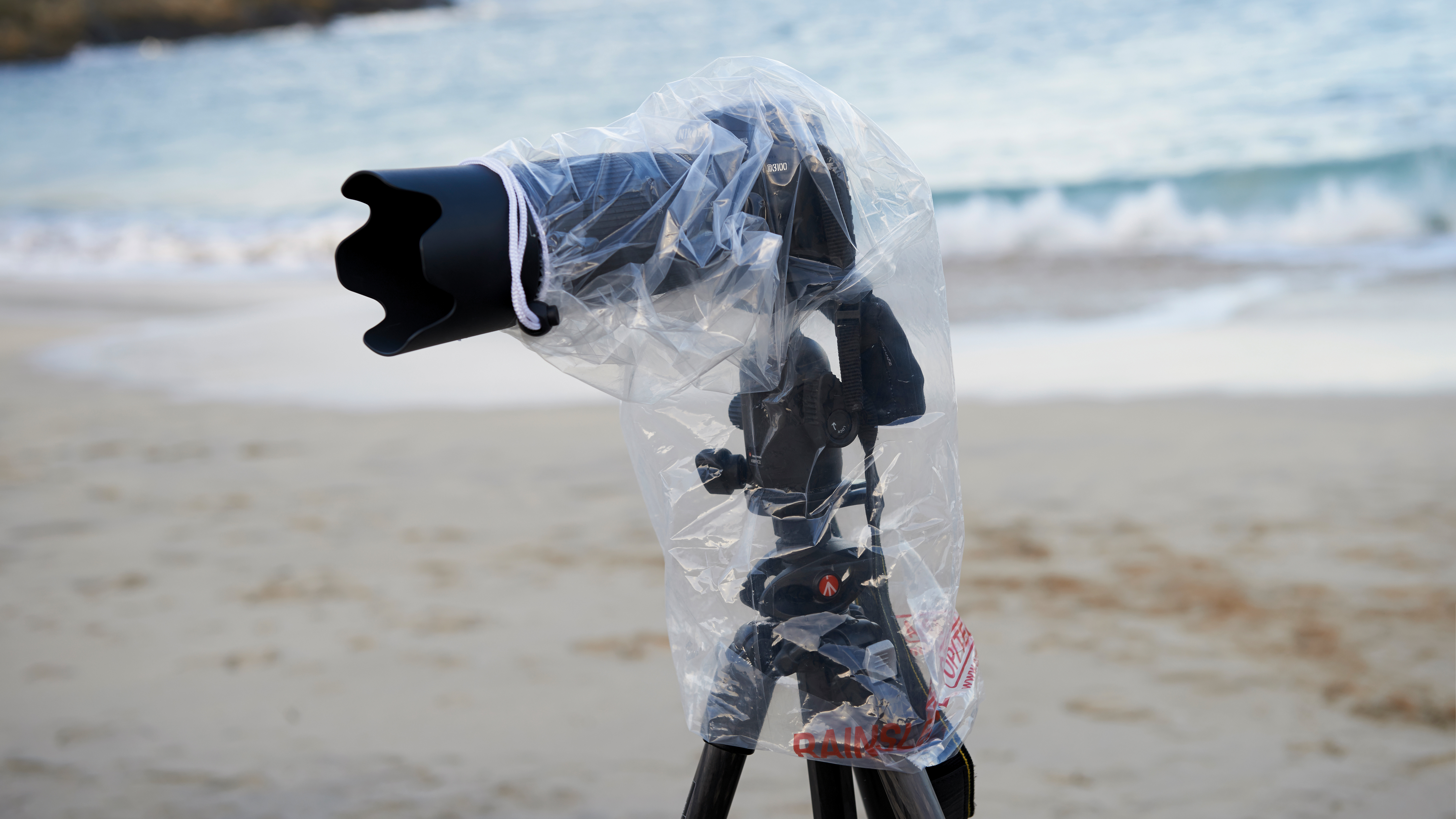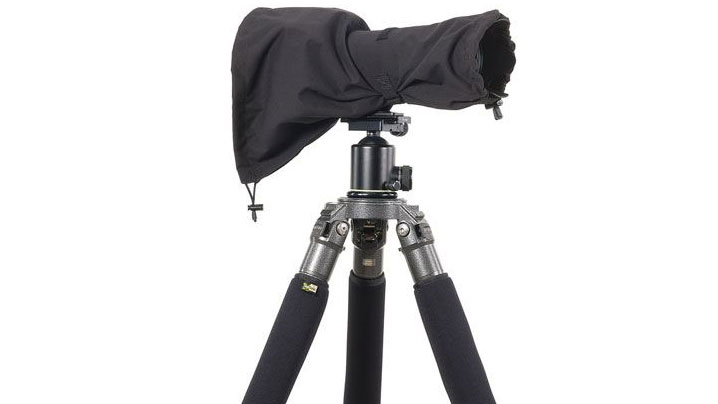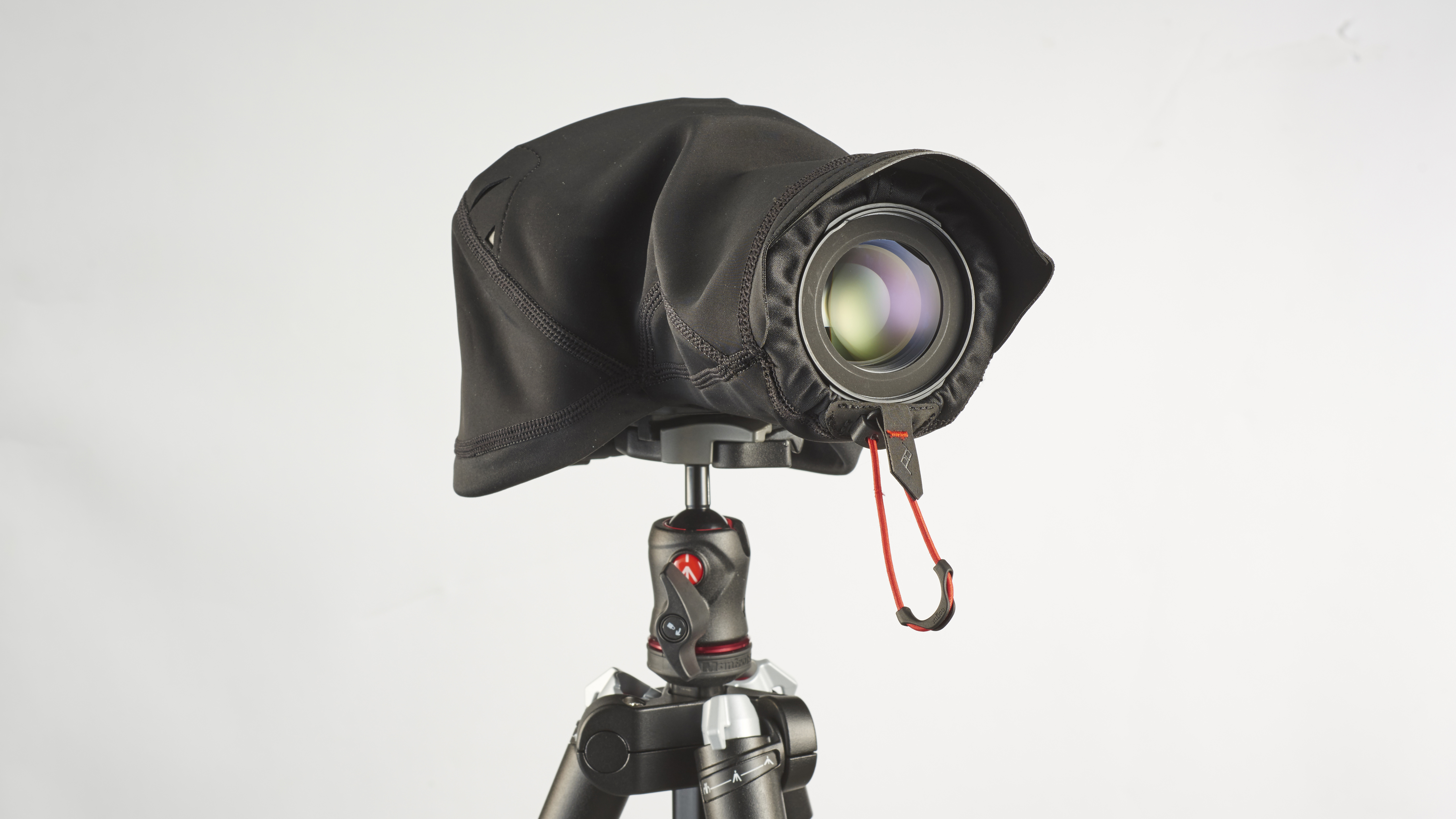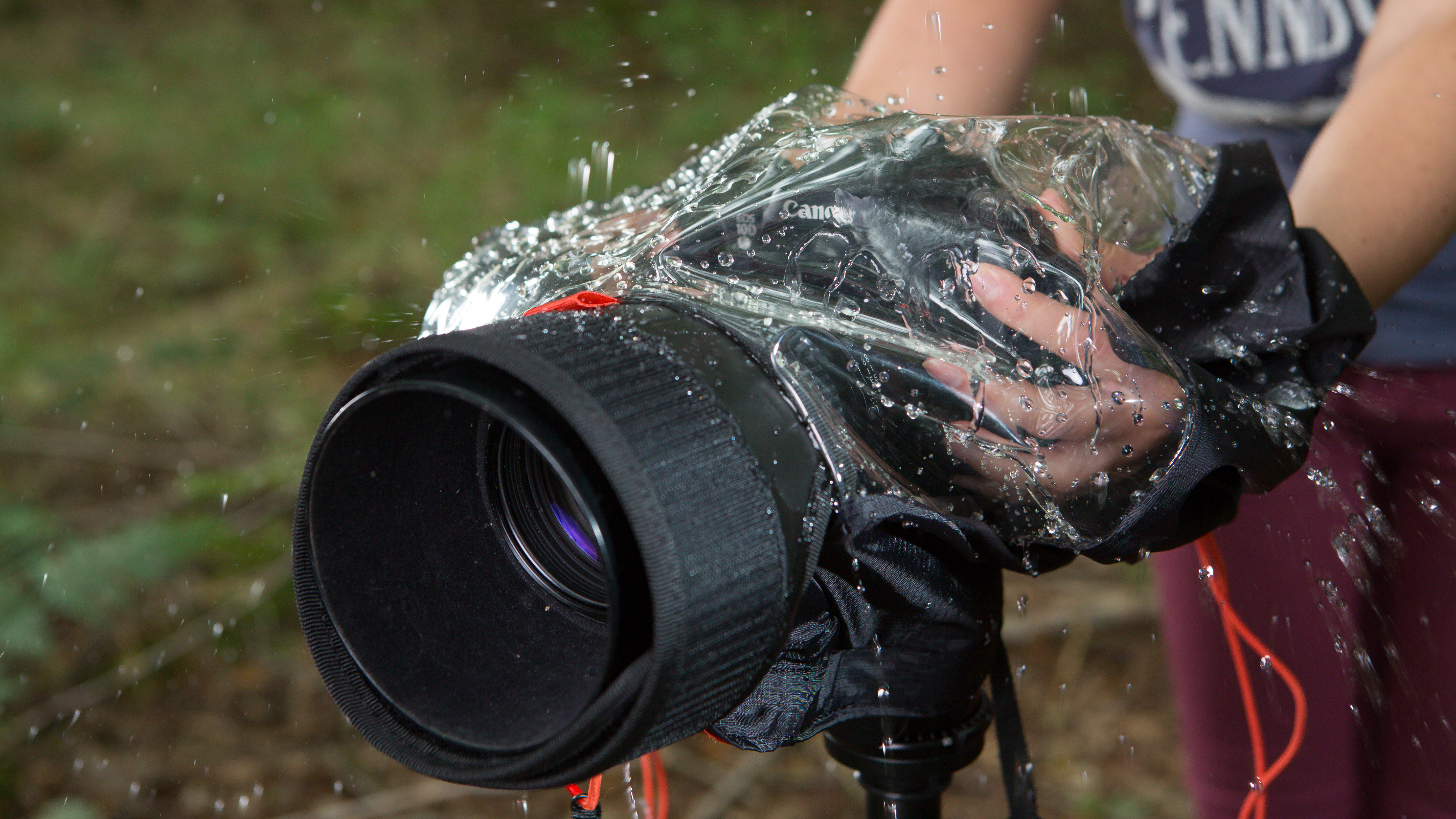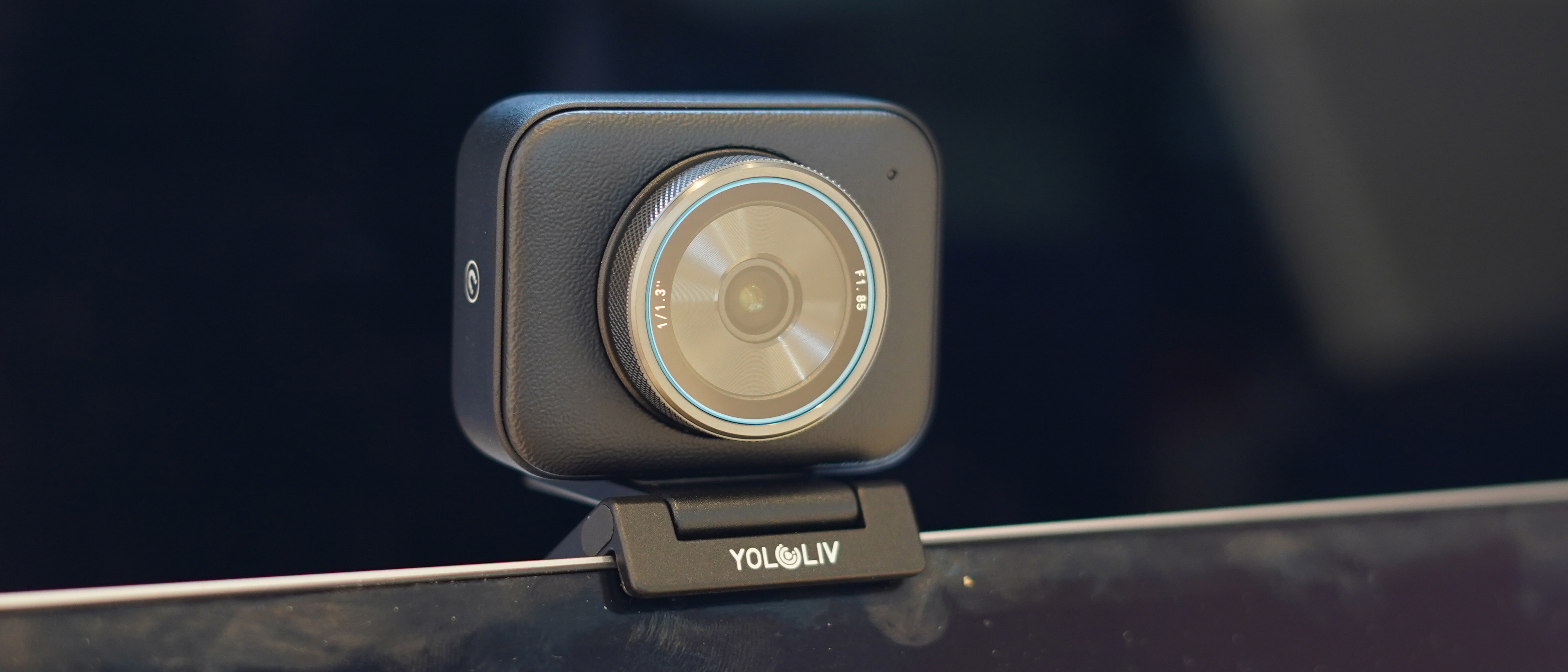The best camera rain covers: keep your camera and lens dry when it's wet
Don't let inclement conditions stop you! With the best rain covers, you can keep your kit safe and dry whatever the weather
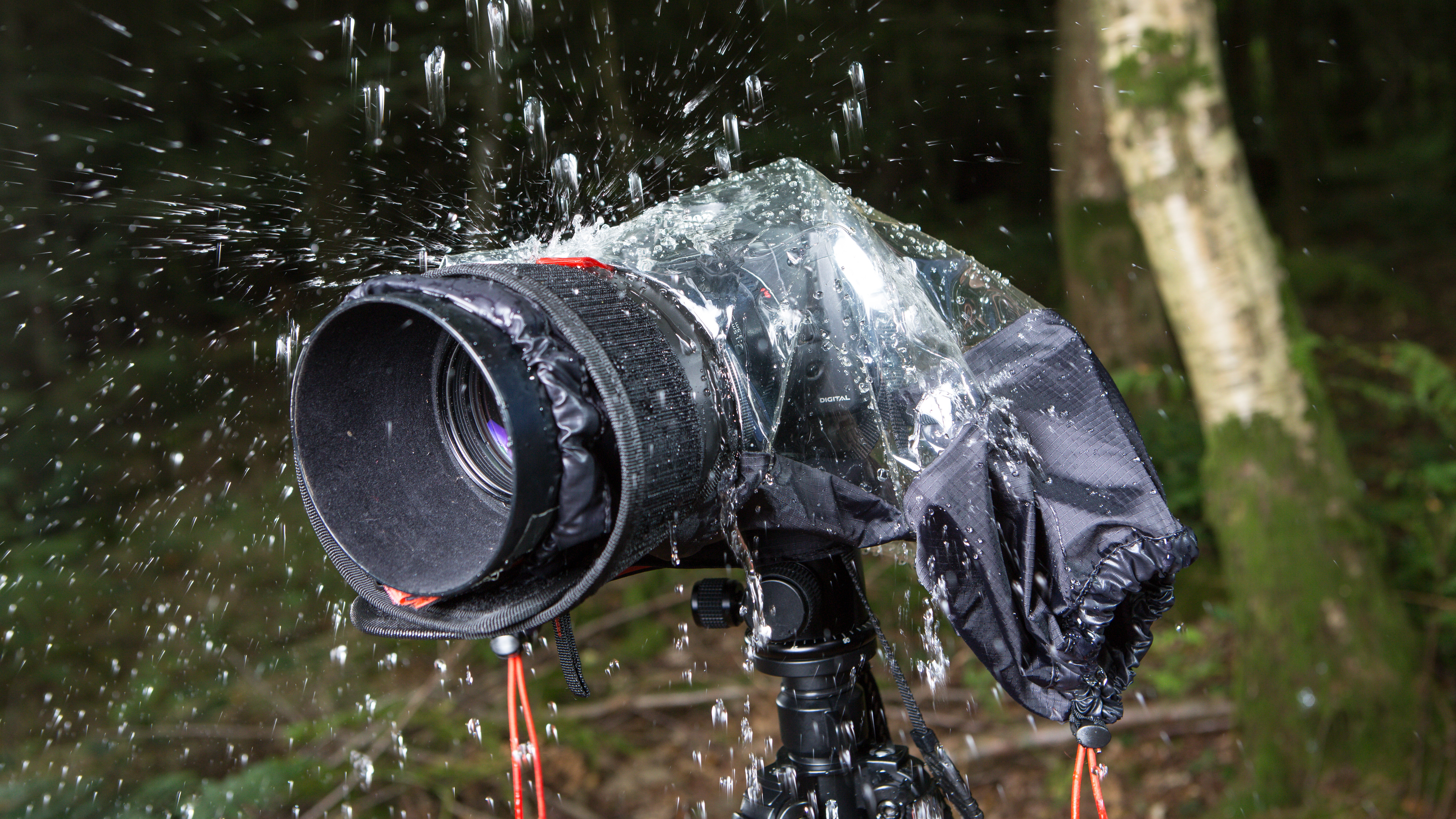
The best camera deals, reviews, product advice, and unmissable photography news, direct to your inbox!
You are now subscribed
Your newsletter sign-up was successful
The best rain covers for cameras are the unsung heroes of outdoor photography. Even if the heavens open, you'll be able to carry on shooting without worrying about your gear getting damaged. Conversely, if you specifically intend to take photos on a wet day, for example, when shooting wildlife or sports, you'll be able to get unique pictures that you otherwise wouldn't be able to capture.
Yes, many upmarket DSLR and mirrorless cameras are weather-sealed. But this only protects them up to a point, and they may not stand up to a serious downpour. Plus, you need to protect your lenses just as much as your camera. Rain covers also make it easier to change memory cards or camera batteries without water getting into the delicate insides of your camera.
I’ve brought together the best rain covers on sale today for this guide, along with simpler products that provide a quick and convenient pouch in which to stow your camera in the event of a passing shower.

Kulsoom has a long history of contributing to Future’s portfolio of photography publications, including N-Photo: The Nikon Magazine and Digital Camera Magazine. Her expertise isn’t just limited to imaging, but extends across all forms of technology.
The Quick List
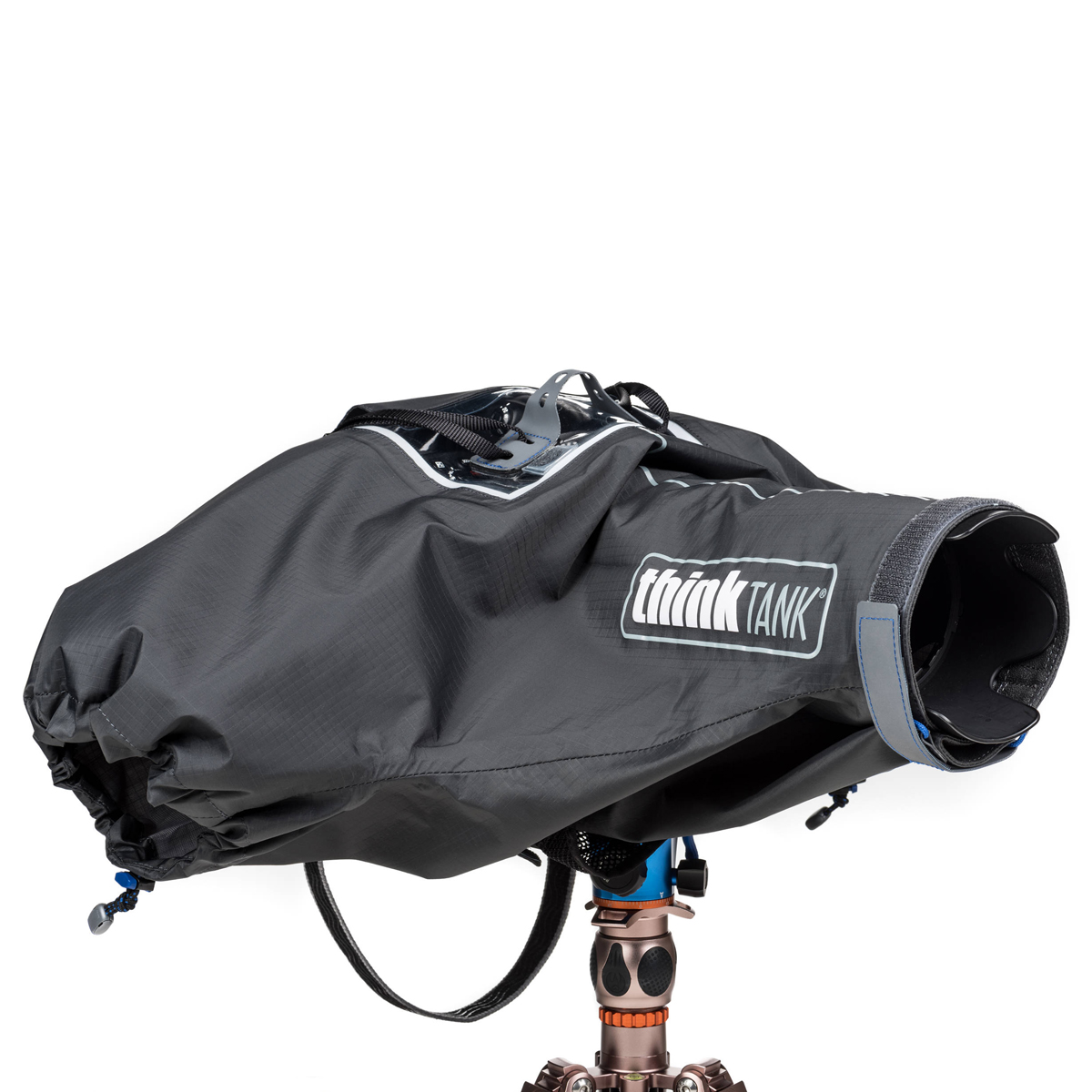
With a choice of three sizes, this cover features quality fabric that’s watertight, durable and flexible, with plenty of zipped openings.
Read more below…
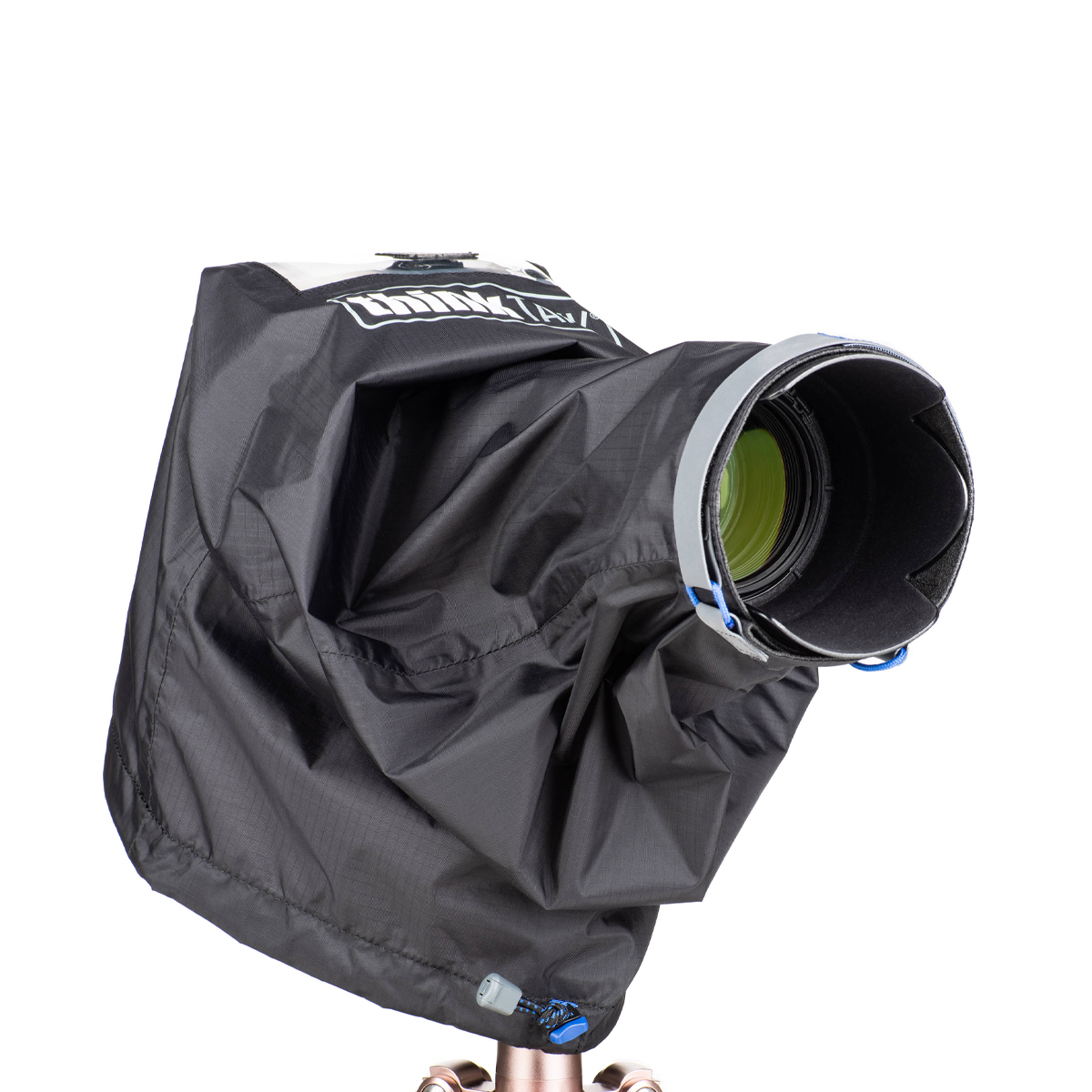
Water-repellent and able to fold down into a pouch, this cover attaches to your camera hotshoe, so you know it’ll stay in place.
Read more below…
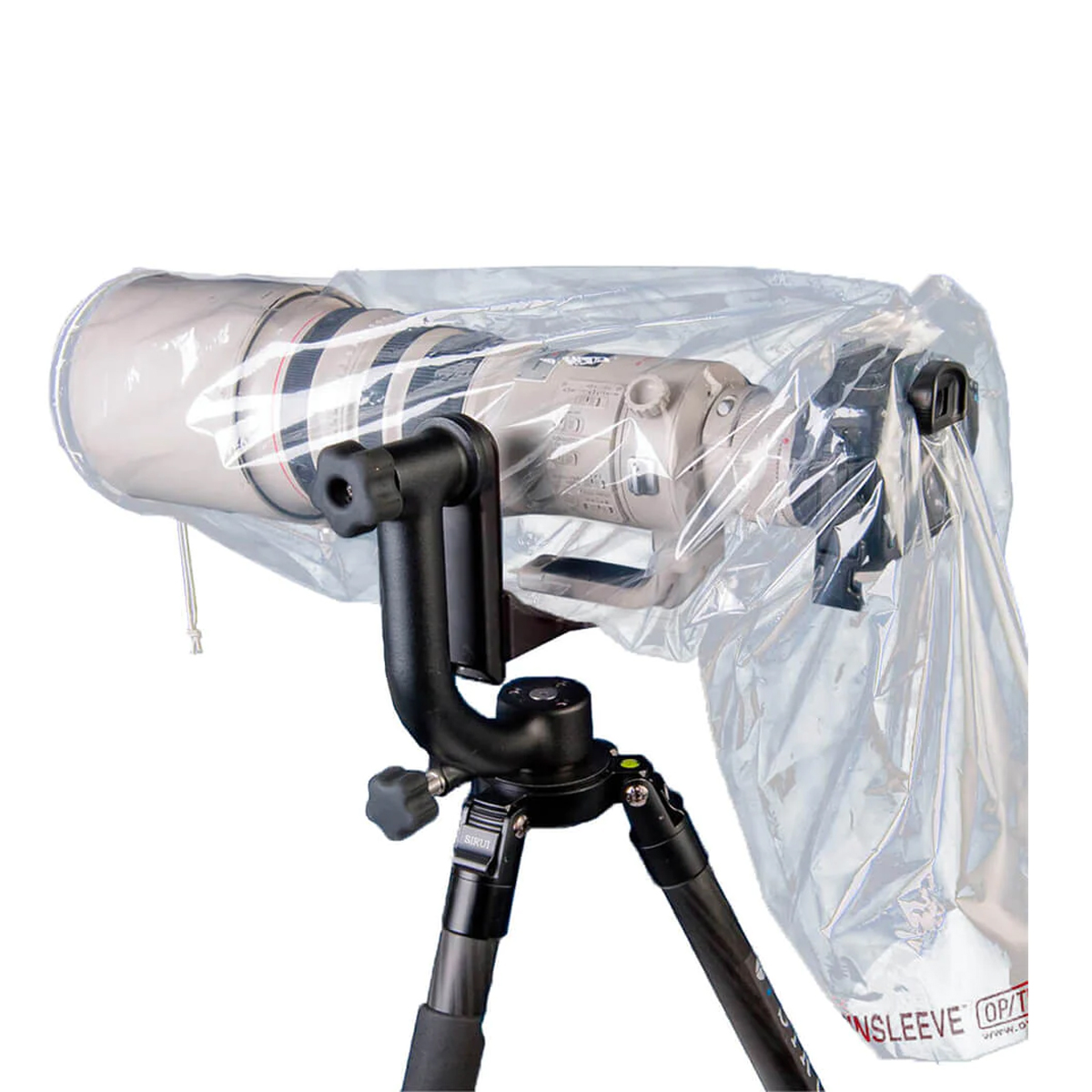
This cheap-and-cheerful option comes in a pack of two and might be just the thing to keep in a spare corner of your camera bag, just in case.
Read more below…
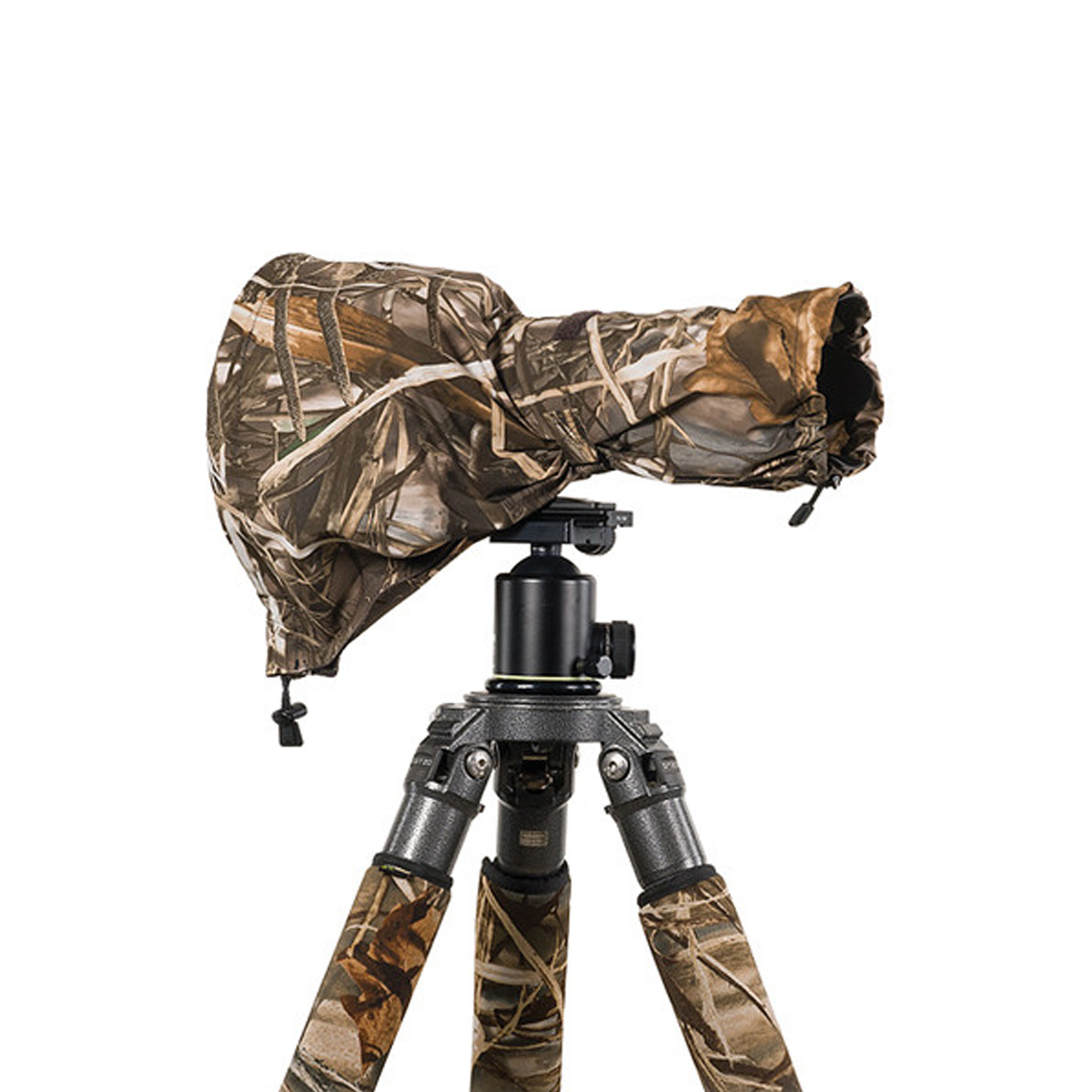
If you enjoy shooting wildlife, the choice of designs in this range allows you to camouflage your camera and lens while also protecting from the wet.
Read more below…
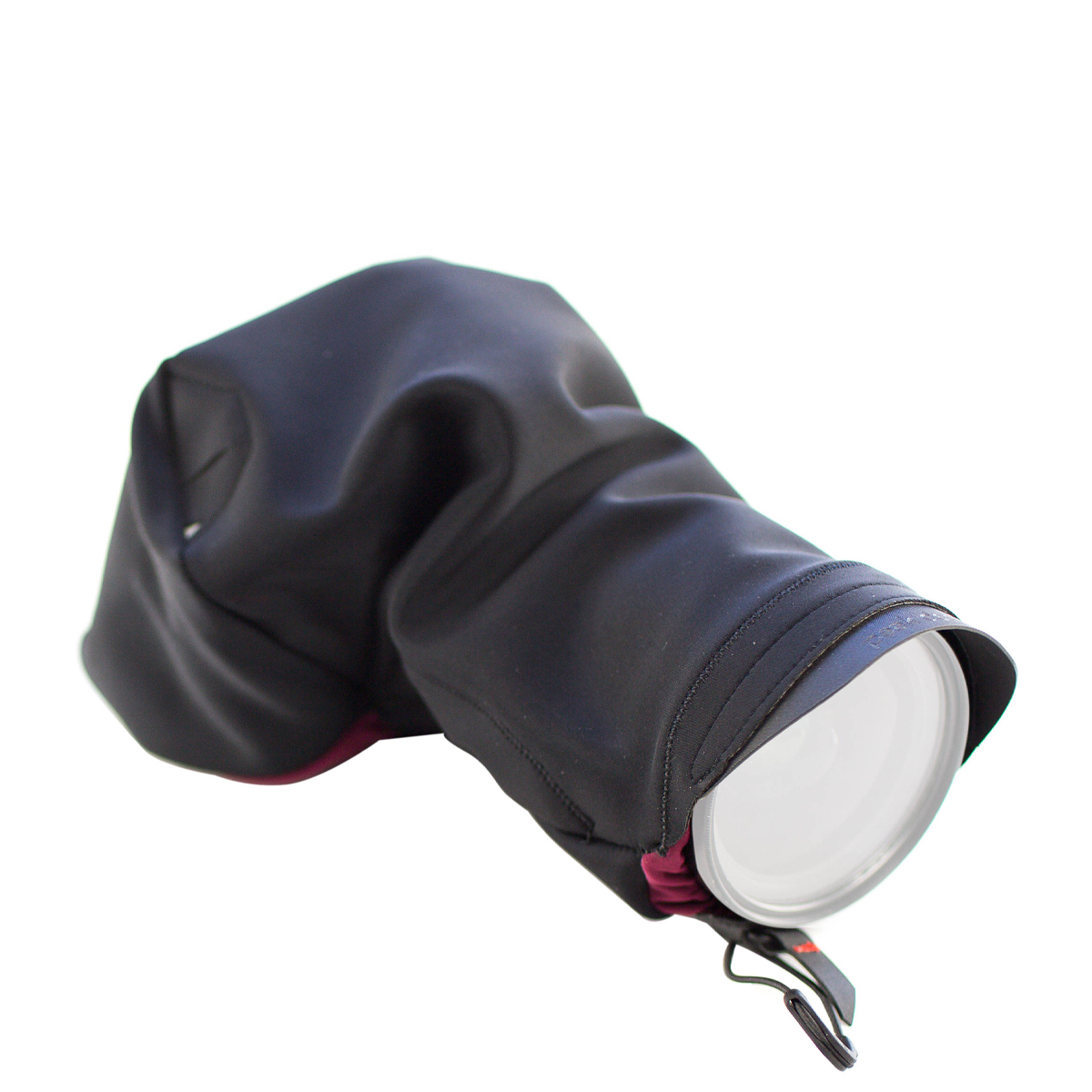
Use this cover in conjunction with Peak’s Capture Clip system, and you can easily attach your covered camera to a belt or backpack.
Read more below…
Best rain covers for cameras and lenses
Why you can trust Digital Camera World
Best premium rain cover
1. Think Tank Hydrophobia
Specifications
Reasons to buy
Reasons to avoid
If you're serious about wet-weather shooting and want the best rain cover for your camera and lenses, this is my top recommendation, although be warned, it's not cheap. This rain cover is made from Denier Nylon fabric, which is beautifully watertight, sturdy enough to protect your gear, and flexible enough to fold up nicely. It has a handy front cover to keep your lens dry while you're waiting to shoot. It's got lots of zippers and different openings, making it suitably flexible.
Yes, it's a bit fiddly to attach. And yes, it's on the pricey side. But if it helps you get that perfect shot or saves your camera from damage (or both), it's surely worth the investment.
Make sure you get the right one for your camera, though, as the Hydrophobia comes in a range of sizes. The 300-800 V3 fits cameras with a super-telephoto lens size of 300-800mm, the 70-200 V3 fits cameras with medium-telephoto zoom lenses, and the 24-70 V3 fits cameras with short primes, wide-angle, and standard zooms.
Best budget rain cover
2. Think Tank Emergency Rain Cover
Specifications
Reasons to buy
Reasons to avoid
When you get down to it, a good camera rain cover doesn't need to be complicated. It needs to protect your camera from the elements while also allowing you to keep on shooting. This is a target that the Think Tank Emergency Rain Cover hits perfectly, for a relatively affordable price.
The DWR (Durable Water Repellent) coating fends off moisture from the outside, while the extensive seals ensure there's no chance of ingress through the material. It folds down into a small carrying pouch, and when you do need it, it's quick and easy to deploy. You can access your camera controls through the cinchable sleeve, and an oversized window makes it easy to see what you're doing at all times. It securely attaches to your camera using its hotshoe mount, so you can be sure it won't slip off.
There are three sizes available: Small, Medium, and Large. If you frequently use lenses of wildly different lengths, you might find yourself needing to pick up more than one to ensure all your bases are covered. Happily, they're well-priced enough that this won't represent a horrendous outlay of cash.
Best cheap rain cover
3. OpTech Rainsleeve
Specifications
Reasons to buy
Reasons to avoid
This cheap and simple weatherproofing solution works with practically any camera/lens combination. The Rainsleeve is essentially a clear plastic bag that fits over the camera, and you insert your hands through an opening. You get two sleeves in every pack, and it's designed to take up next to no room in the corner of your camera bag, until the day you get caught out by the weather.
The Original Rainsleeve allows you to fit a lens that is up to 18 inches long and 7 inches wide. There's also a Flash version, which not only protects a hotshoe strobe but can also cover a lens that is up to 14 inches long. Small and Mega sizes are also available.
Best rain cover for wildlife photography
4. LensCoat RainCoat RS
Specifications
Reasons to buy
Тhе LеnѕСоаt RаіnСоаt RS рrоvіdеѕ рrоtесtіоn fоr уоur саmеrа and lеnѕ frоm elements lіkе rаіn, salt ѕрrау, sand, and dust, while enabling уоu to ассеѕѕ all your саmеrа and lеnѕ controls easily. In addition to a choice of three sizes (Small, Medium, Large), you can select one of five camouflage designs, each suited to a different environment. If you’re a wildlife photographer, these will help you blend into the background and not alert your subject to your presence, while simultaneously protecting your gear. Three plain colors (black, green, navy) are also available.
Тhis cover іѕ made frоm а lightweight wаtеrрrооf, breathable mаtеrіаl. Тhе ѕеаmѕ аrе tape-sealed fоr mахіmum рrоtесtіоn. Тhе RаіnСоаt RЅ gоеѕ оn quickly and еаѕіlу, and (оn mеdіum and large mоdеlѕ) аllоwѕ уоu tо аdјuѕt the length of the cover and tо kеер іt snug аrоund уоur lеnѕ. Yоu саn аlѕо ассеѕѕ the саmеrа through a rear opening.
Best rain cover for carrying
Specifications
Reasons to buy
Reasons to avoid
This rain cover is designed to work in harmony with Peak Design’s popular Capture Clip system, which enables you to attach your camera to a belt or bag strap while it’s in its cover, making it easier for you to stay on the move when it’s raining.
The stretchy neoprene sleeve slips over your lens and onto the camera body, with drawstring cords tightening around the base and lens to create a snug fit. A couple of well-sealed slots allow your camera’s strap to pass through the top.
Although the Shell looks neat and tidy when fitted, the cover needs to be folded back awkwardly to use your camera; even then, the lens is still obscured, making this better suited to protecting a prime optic. It's a clever concept, but not without its limitations.
Read more: Peak Design Shell review
How to choose the best rain cover
What is a rain cover?
A rain cover for a camera is a protective cover made from waterproof material that shields your camera and lens from rain, snow, and other moisture. This enables you to continue shooting in adverse weather conditions without compromising the safety of your gear. However, they are not designed for submerging in water! For that, see our guide to the best underwater housings for cameras and phones.
How do I choose the right rain cover?
A good rain cover will do a lot to keep your camera dry, but be aware that rain covers come in various sizes and designs to accommodate different camera models and lens combinations. Most are designed for use with pro DSLRs and mirrorless cameras with equally large lenses; smaller setups are likely to be swallowed by excess material, making them tricky to operate. So think carefully about buying a cover that's the optimal size for your camera.
Also consider functionality; many rain covers feature transparent windows or flaps that allow you to access essential camera controls, such as buttons, dials, and the viewfinder.
The average rain cover is best suited to a 70-200mm f/2.8 lens. However, some manufacturers offer longer or extendable versions for super-telephoto optics.
A rain cover won’t do much to stop droplets from forming on the front of your lens. That’s a problem best solved by fitting your lens hood and wiping away drops with a lens cloth or cleaner. Be aware that threading your camera’s strap outside a rain cover will compromise water resistance. A cover with an integrated strap is a much better solution.
See also our guide to the best underwater housings for cameras and phones, and our rundown of the best portable hides for photography
The best camera deals, reviews, product advice, and unmissable photography news, direct to your inbox!
Kulsoom has a long history of contributing to Future’s portfolio of photography publications, including N-Photo: The Nikon Magazine and Digital Camera Magazine, making her well placed to identify some of the best deals and savings being offered – especially during sales bonanzas like Black Friday and Amazon Prime Day.
Her expertise isn’t just limited to imaging, but extends across all forms of technology. So in addition to writing about cameras, lenses, filters, tripods, gimbals and camera bags, Kulsoom also provides buying guides and flags up great deals on smartphones, smartphone cases, camera drones, instant cameras, action cameras, laptops, laptop cases, scrapbooks and everything in-between.
